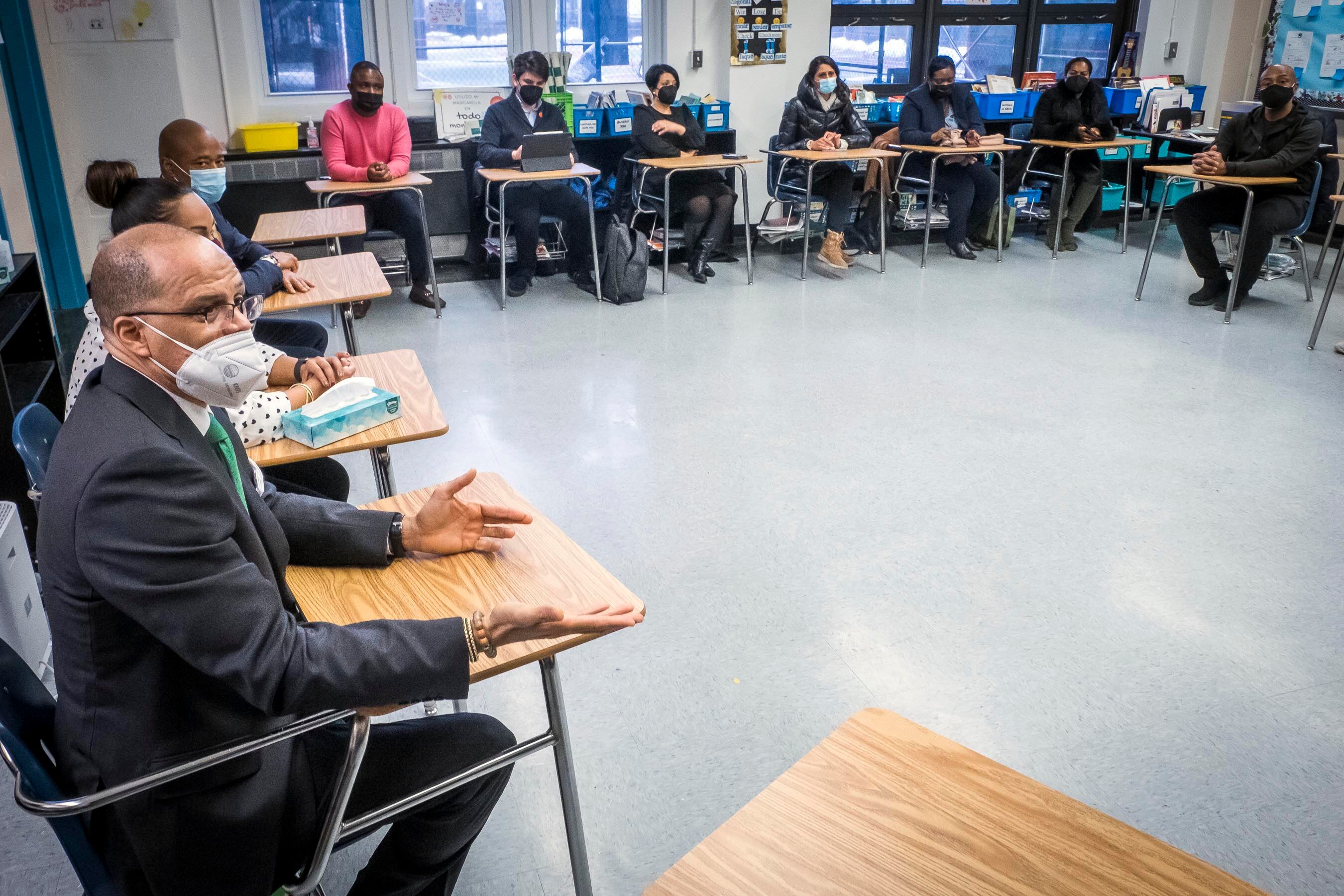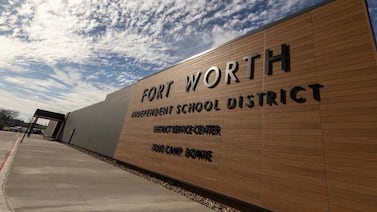There will not be any last-minute changes to how New York City’s selective public high schools admit students, Chancellor David Banks announced Wednesday.
Banks had suggested last week that he was considering eleventh-hour tweaks in response to an outpouring of parent complaints.
At issue: A new policy that will open the doors of the city’s most competitive high schools to students with a solid B grade average. The move is expected to increase admissions offers made to Black and Latino students. Those students are less likely to meet the admissions criteria for city’s selective schools, along with those who are learning English as a new language, have a disability, and come from low-income families.
But the plan rankled the families of children with top marks, and drew criticism that Asian students would be harmed. The outrage prompted Banks to reconsider the move, despite a looming deadline: Applications are due Friday.
After keeping parents on the edges of their seats for most of the week, a decision came late Wednesday afternoon: “The high school admissions policies will remain the same for the current admissions cycle. No changes will be made,” according to an education department press release.
More reforms could be in store down the road, however. The chancellor, who took the helm of the nation’s largest school district in January, promised to take a critical look at the infamously opaque admissions process.
“I’ve heard from families across the city over the past two months, and the consensus is clear: we must reform our enrollment and admissions policies and expand access to quality schools,” Banks said in a statement, promising to work with families on a new way forward.
All New York City students apply to high schools, with 700 programs to choose from. Students can apply to up to a dozen programs.
But schools can also select students. About a quarter use academic records, or “screens,” to determine who gets in. That can include essays, interviews, and admissions tests.
New York City stands out for the breadth of schools using these competitive admissions criteria, in a process that many critics say drives the school system’s status as one of the most segregated in the country. Supporters say it ensures that top-performing students are challenged, and that otherwise teachers might struggle to meet the needs of diverse learners.







